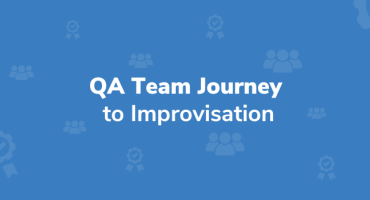The Advancement of AI: A QA Engineer's Perspective
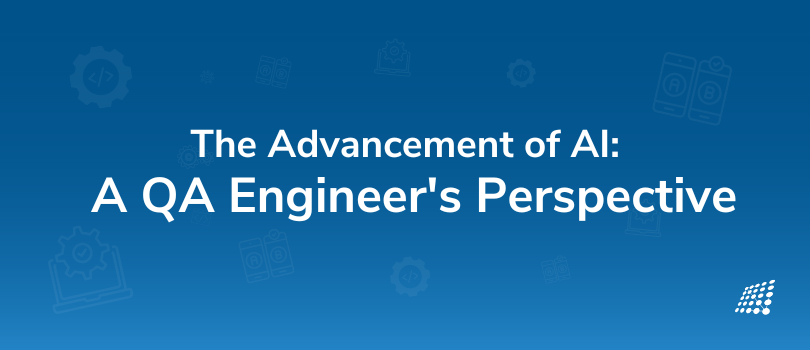
The digital revolution is upon us, and with AI as the frontrunner, one aspect that is crystal clear is this - today’s workforce needs to work collaboratively with AI. The impact of Artificial Intelligence (AI) is seen in almost all industries, businesses, and organizations, including healthcare, finance, manufacturing, and transportation, among others. As a Software Quality Assurance (SQA) engineer, I have had the opportunity to work with pioneering AI tools and witness firsthand the power of AI and what it is capable of.
In this blog post, I will share my perspective on the advancement of AI, its applications, and the vital role QA engineers play in testing AI products. Also, I will discuss the roadblocks and opportunities associated with AI testing and how QA engineers can help businesses develop AI tools that are reliable, bug-free, and meet quality standards.
The Advancing Strides of AI
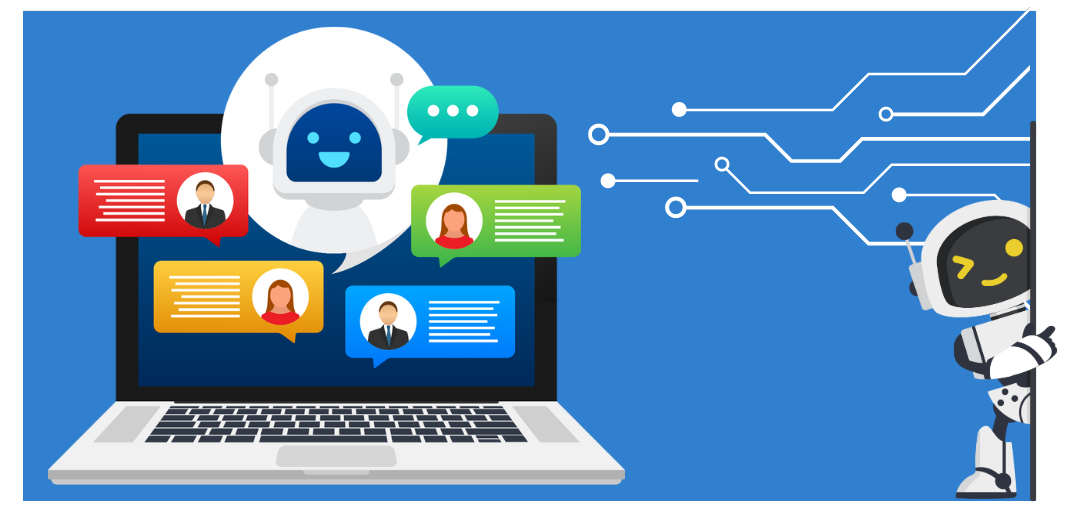
Since its inception in the 1950s, AI has progressed from straightforward rule-based systems to sophisticated deep learning algorithms that can analyze enormous amounts of data and produce precise predictions. AI can now perform activities that were previously thought impossible thanks to advancements in machine learning, natural language processing, and computer vision.
For instance, virtual assistants like Siri and Alexa have become increasingly prevalent in our daily lives, assisting us with activities like making appointments, setting reminders, and researching information. AI-driven systems are being utilized in the healthcare sector to identify cancer, diagnose diseases, and track patients' health problems. AI is applied to trading algorithms, risk analysis, and fraud detection in the financial sector. Artificial intelligence (AI) is utilized in manufacturing for quality assurance, predictive maintenance, and supply chain optimization.
Moreover, AI has also enabled the development of autonomous vehicles, drones, and robots that can perform tasks in hazardous environments, such as space exploration and disaster response. AI-powered systems have the potential to transform and upgrade every industry and sector, creating new opportunities and transforming the way we live our lives.
How AI is Altering the World and How QA Engineers Can Help?
You will notice AI everywhere. It is redefining how we interact with technology and one another, from chatbots to self-driving automobiles. AI is not just simplifying our lives but also opening up new doors for growth and innovation.
But AI isn't flawless. AI is prone to mistakes and failures as it develops in complexity and capacity. AI systems are susceptible to errors, erroneous findings, and unpredictable behavior. These mistakes could have detrimental effects on society, businesses, and users.
For this reason, QA engineers are crucial to the development of AI. AI systems are tested by QA engineers to make sure they live up to client and user requirements for quality and performance. QA engineers can aid in finding and fixing issues, enhancing performance, and reliability of AI systems.
Recently I tested an AI tool named “AIBidAssit”. Here is the Overview of the tool
Client Overview:
Our client, a brilliant freelancer wanted to streamline the proposal writing process. They envisioned a cutting-edge web application that would leverage OpenAI's powerful language models to create customized proposals for marketplace jobs like UpWork. They were hooked on an idea to reshape proposal writing and the way marketplace job listings were approached. With this innovative tool, our client aimed to save precious time and increase their chances of winning more proposals effortlessly.
Challenges:
The main obstacle of the project was to build an AI-powered web application that could automatically generate high-quality proposals for Market place jobs. The application had to be scalable, user-friendly, and prompt enough to generate proposals in real time. The team also had to integrate the application with the preferred marketplace API to retrieve job listings and other relevant data.
Solution:
To fulfill the user's needs, SJ Innovation created a web application with ReactJS, Node, MongoDB, and OpenAI. The application allows users to register and create a company profile, which includes their company details and portfolio. Users can then select their preferred job listing (in this case, UpWork) and offer crucial details about their proposed solution. The system then uses OpenAI's language models to generate a customized proposal based on the user's input.
Testing these tools has been informative! I have learned a lot about AI and its potential, but there were also some stumbling blocks and limitations of AI, such as:
Data quality: AI systems need large amounts of data to learn and improve as they go forward. However, not all data is reliable or relevant. Poor data quality means poor AI performance or outcomes. QA engineers offer you the peace of mind that the data used for training and testing AI systems is right, complete, consistent, and unbiased.
Ethical issues: Ethical AI systems have been a major topic of discussion ever since there were instances where AI systems generated biased or harmful content. After all, it has the potential to invade privacy or manipulate behavior. QA engineers can help ensure that AI systems are on par with ethical principles and values, such as fairness, transparency, accountability, and safety.
Human-AI interaction: AI systems can interact with humans differently, such as through voice, text, image, or gesture. However, it’s not always a smooth or natural human-AI interaction. AI systems can misunderstand human input, generate incorrect/biased output, or lack feedback or empathy. QA engineers can help improve the user experience and satisfaction of AI systems by testing their functionality, usability, accessibility, and emotional intelligence.
What to Know about Testing AI Products
With great power comes great responsibility. As AI continues to advance, it also poses new challenges for businesses and organizations. Developing AI tools requires a fresh approach to software development, and testing AI products requires a more significant level of expertise and knowledge.
Testing artificial intelligence (AI) products entails testing the algorithms that drive the AI, the training data sets, and the user interface that communicates with the AI. The output produced by AI must be accurate and trustworthy, which is the most important consideration when testing AI technologies. That's where quality assurance engineers come in handy.
QA engineers must ensure that the AI product meets the required standards and is free from bugs and defects. The testing process must be comprehensive and cover all possible scenarios and edge cases. It must also be automated to ensure that the testing process is efficient, effective, and repeatable.
Challenges and Opportunities Faced
There are hindrances aplenty for QA engineers when testing AI products.
Lack of standardization in the AI industry
The absence of standards in the AI sector is the first problem. For testing AI products, there are no standardized testing guidelines or criteria. QA engineers are forced to create their own testing frameworks and procedures as a result.
Complexity of AI tools
The intricate nature of AI tools is the second difficulty. It takes more skill and knowledge to test AI tools because they are more complicated than traditional software. QA engineers must analyze and understand the requirements and the complex nature of AI to be successful in various projects.
Benefits and My Thoughts
Besides emphasizing the significance of testing AI systems in real-world scenarios, I also want to highlight the relevance of testing AI systems in real-world scenarios because AI might behave differently in various contexts and environments.
The ability of AI to automate processes and tasks that were previously carried out manually or with human involvement is one of the technology's main advantages. This can speed up processes, lower expenses, and improve accuracy and efficiency. Chatbots, for instance, can manage consumer inquiries and support requests around the clock without human involvement, freeing up human resources for other activities. Input from the user can be used to generate code snippets or templates, which decreases the need for manual coding and boosts productivity. Based on customer demands, DALL-E can provide unique and tailored images, fostering creativity and expression.
However, AI is not a magic solution to all issues. Limitations, errors, biases, and ethical implications prevail around AI systems that need to be addressed and monitored. QA engineers are vital in recognizing and addressing these issues by testing AI systems from different perspectives and scenarios. QA engineers can also collaborate with developers, data scientists, and designers to improve the design and implementation of AI systems and ensure that they meet the user's needs and expectations.
The richness and diversity of AI present another difficulty. Depending on the application and area, AI systems can use a variety of algorithms, models, data sources, and structures. To effectively test and assess AI systems, QA engineers must have a thorough understanding of the principles, tools, and technology of AI. Aside from that, they must stay current with AI's constantly evolving trends and advancements.
Additionally, in order to collaborate and communicate effectively with the various teams and stakeholders involved in AI development, QA engineers must possess strong communication and collaboration skills. They must be able to convey technical ideas and problems to stakeholders who lack technical expertise and vice versa. Additionally, they must be able to offer feedback and recommendations constructively and professionally.
Conclusion
AI is powerful, and it is transformative. However, incorporate it into your activities with caution. AI needs to be tested and monitored to ensure quality, reliability, and safety are never compromised. QA engineers are essential for AI development, as they can provide valuable insights, feedback, and recommendations for improving AI systems. I urge you to investigate the field of artificial intelligence and its possibilities, as well as to work with QA engineers to develop better and more intelligent AI systems. I say this as a QA engineer who has tested several AI tools using OpenAI APIs
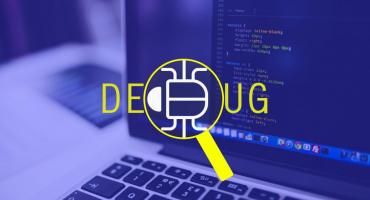
Why Do We Debug Code?
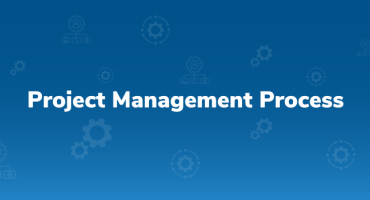
Sjinnovation’s Project Management Process
